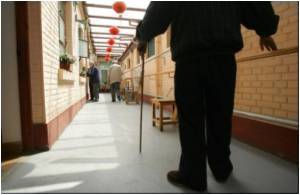
The article will be published online June 14, 2012, in the American Journal of Public Health.
The report outlines nine policy recommendations that emerged from a gathering last year of 29 national experts in prison health care, academic medicine, nursing and civil rights.
The recommendations promote cost-effective quality care for older prisoners, said lead author Brie Williams, MD, a UCSF associate professor of medicine in the division of geriatrics.
"A first step is to focus on these nine priority areas in order to set the stage for collaboration among the many disciplines involved in older prisoner health care," Williams said.
From 2000 to 2009, the country's prison population grew by 16 percent, and the number of older prisoners – 55 years or older – increased nearly 80 percent.
Advertisement
"Prisoners have a right to timely access to an appropriate level of care for serious medical needs,'' the authors said in the report. "Yet criminal justice health care systems are underprepared to provide cost-effective quality care for older adults.''
Advertisement
- Institute a standard definition of geriatric or older prisoners – the experts suggest age 55 or older;
- Improve training of prison staff and health care providers;
- Provide screening for dementia;
- Identify health needs of older women prisoners;
- Create national medical eligibility criteria for early prisoner release based on medical needs;
- Establish uniform policies for geriatric housing units.
The report points out that prompt attention to age-related disabilities of older inmates eventually would result in societal benefits outside prison gates. With the vast majority of inmates ultimately released back to the community, "Prison programs that improve health and cognitive skills or that target substance abuse have been associated with decreased recidivism and re-arrest,'' the authors wrote. And with better care during incarceration, prisoners when released would make less use of emergency rooms and other community medical resources.
Study funding was provided by the Jacob and Valeria Langeloth Foundation, by private correctional health care vendors and by the John Jay College of Criminal Justice.
Williams is also the lead author of another report on the aging prison crisis that was recently published in the Journal of the American Geriatrics Society (JAGS).
Problems with the graying prison population are straining state and local budgets by spilling into the community as well as public health care systems, the JAGS report found.
"Our study discusses how successful models of care that have been developed for older adults in the community could be adapted to address the mounting health care crisis of aging in the criminal justice system," said Williams.
Source-Eurekalert









